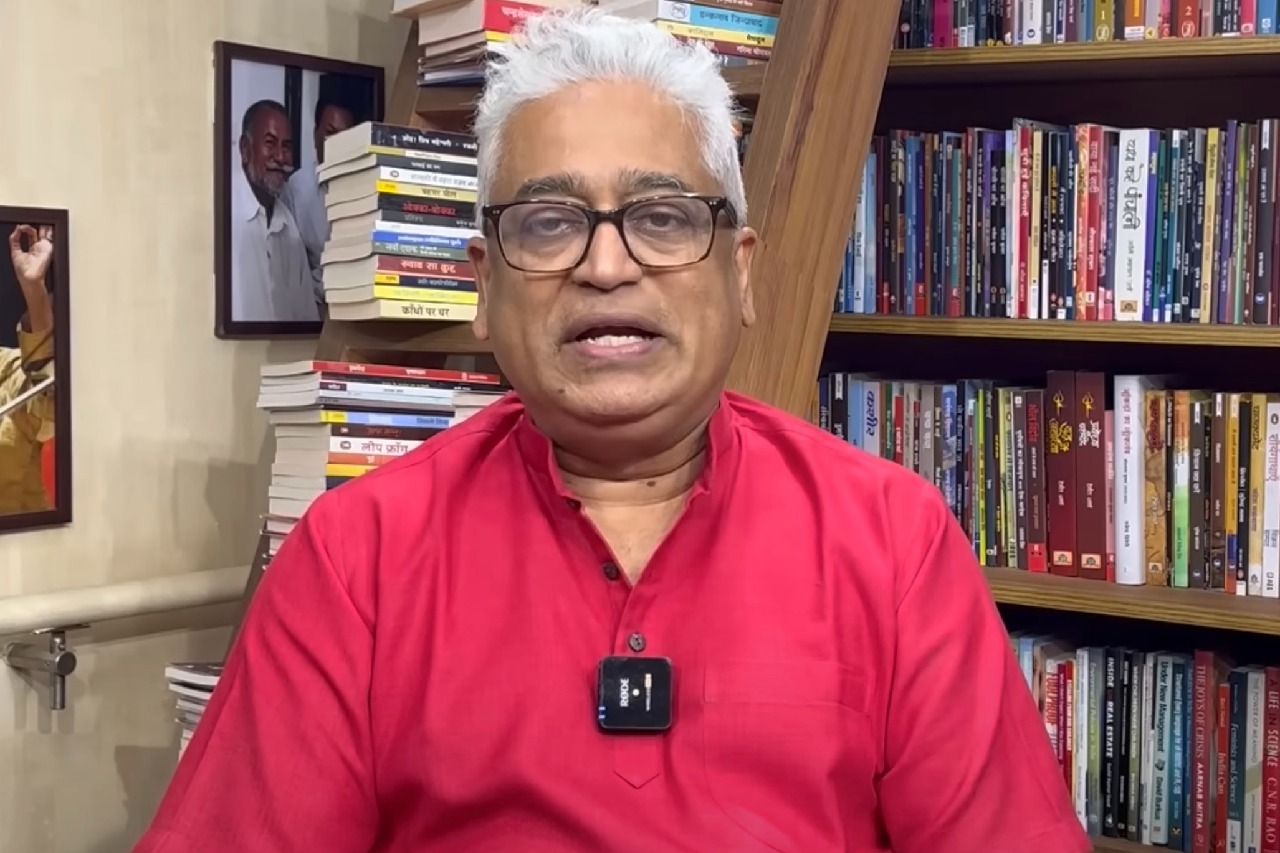Chandrababu and Nitish Kumar Shift Political Stance Towards Modi: Rajdeep Sardesai

Veteran journalist Rajdeep Sardesai has observed that Andhra Pradesh Chief Minister N. Chandrababu Naidu and Bihar Chief Minister Nitish Kumar, both of whom had previously taken a strongly critical stance against Prime Minister Narendra Modi, have now emerged as his close political allies. Sardesai attributed this shift primarily to their respective political necessities. In his video blog Straight Bat, Sardesai stated that in contemporary politics, adaptability and expedience have overtaken ideology, citing the transformations of Chandrababu Naidu and Nitish Kumar as clear examples.
Rajdeep Sardesai humorously remarked that both leaders could win Olympic medals in “political gymnastics.” He said that following the 2024 general elections, both Chandrababu Naidu and Nitish Kumar initially anticipated the possibility of a hung Parliament, which might give them leverage. However, within ten months, both leaders appeared to have silently acknowledged the dominance of Narendra Modi and the Bharatiya Janata Party (BJP). As evidence of this shift, Sardesai pointed to the recent support extended by the Telugu Desam Party (TDP) and the Janata Dal (United) to the Waqf Amendment Bill in Parliament.
Sardesai noted that this shift is especially significant in the case of Chandrababu Naidu. He recalled that during the 2019 elections, Chandrababu Naidu had severely criticized Narendra Modi—even allegedly referring to him as a “terrorist” at one point. However, Naidu is now maintaining an amicable relationship with the central government. Sardesai analysed that Naidu is engaging with the Centre in a transactional manner, aiming to secure the maximum financial benefits for Andhra Pradesh. He further stated that although Chandrababu Naidu possesses the administrative expertise and past experience of supporting the United Front and the Atal Bihari Vajpayee-led NDA government—and could potentially manage without BJP’s support—he is currently prioritizing a cooperative stance with the Union government.
Regarding Nitish Kumar, Sardesai characterized his transformation as a clear example of abandoning ideological commitments for the sake of political survival. He reminded that Nitish Kumar had left the NDA in 2013 after Narendra Modi was declared the Prime Ministerial candidate, yet now he has rejoined the same alliance. Sardesai remarked that Nitish Kumar, who once hesitated to share a stage with Modi, now appears as a vassal ruler under Modi’s dominance. He also mentioned that Nitish Kumar’s deteriorating health has further weakened his political standing, and suggested that the BJP is likely to use him as a “mascot” until the Bihar elections. Sardesai recalled a conversation from 2013 in which Nitish Kumar had told him, “I cannot work with an autocrat,” referring to Modi.
Sardesai concluded that both Chandrababu Naidu and Nitish Kumar have skillfully adapted their strategies for political survival, treating pragmatism as an art form. He argued that their decisions are blurring the line between secularism and communalism, and that convenience and opportunism are increasingly replacing ideology. Expressing concern over this trend, he said it is weakening the secular and constitutional values of the Indian Republic. He suggested that these leaders should reflect on how far they have strayed from the ideals they once upheld, as if looking into a “shattered mirror of secularism.”